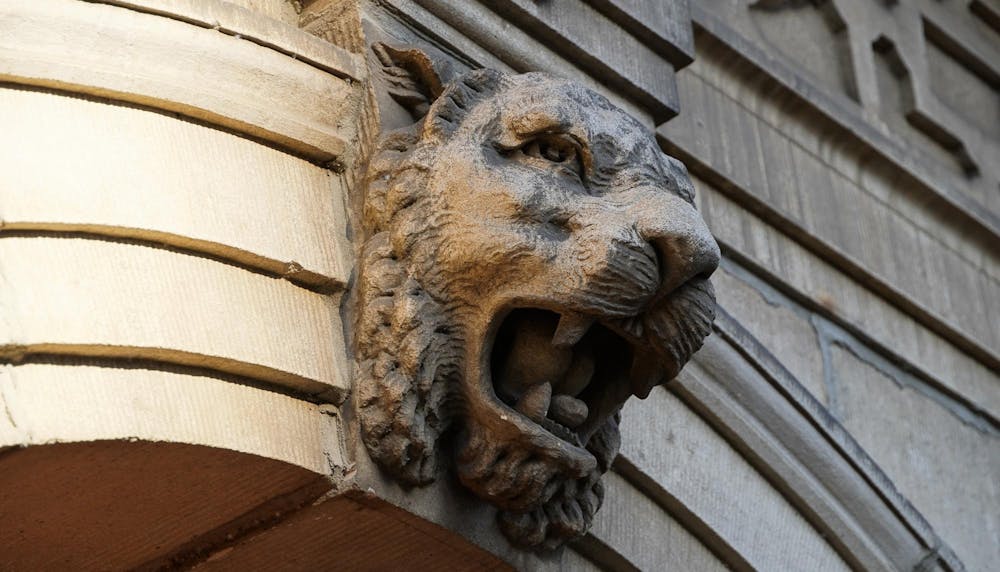“We even have a Gutenberg Bible in the library!”
Orange Key tour guides are pointing out something far more important than just a fun fact when they share this: faith is a discipline deeply embedded in Princeton’s history. The academic study of religion — separate from practice or proselytization — is a unique amalgamation of ethics, philosophy, English, comparative literature, and history. From HIS241: Faith and Power in the Indian Ocean Arena to ENG298: Myth and Mythography in the Early Modern World, even classes outside the Department of Religion are preoccupied with religion. In attaining a well-rounded education in any of the described fields, a student will inevitably encounter thought-provoking questions about religion and its role in morality and public life. Because of this, Princetonians might appreciate the opportunity to further plumb the depths of these issues without having to make Religion their concentration — so why don’t they?
The issue lies in the current lack of a minor or certificate program in the Department of Religion. According to The Daily Princetonian's 2023 Senior Survey, only about 0.7% of last year’s graduating class obtained a degree in Religion. While 74% of classes offered at the University have fewer than 20 students, REL 263: Religion and its Modern Critics and REL 230: Who Wrote the Bible alone drew a combined 181 students last semester. Clearly, Princetonians seek the opportunity to study faith — but they aren’t given the ability to pursue it in an official capacity.
Introducing a religion minor would help Princeton live up to its commitment to thoroughly interdisciplinary undergraduate education. While the Department of Religion welcomes anyone who’d like to take one (or many) of their classes, there are few ways to officially declare one’s commitment to the study of religion alongside other subjects. Comparative Literature majors may choose to focus on Religion as a textual discipline, for example, but what about those pursuing other majors? At Harvard, students can choose to study Religion as a secondary field. The curriculum allows upperclassmen to specialize in a particular era or geographical region that may complement their primary coursework.
In contrast, at Princeton, students who are fascinated by the academic study of faith — alongside one or more other topics — are often forced to choose when it comes time to declare at the end of sophomore year. Minors and certificates, like Judaic Studies and Near Eastern Studies, allow for the study of certain fields within the religion discipline, but require hyperspecialization that is less attractive to students seeking a broader education in the department.
Additionally, the lack of a minor is a stumbling block for those who want to incorporate religion into their theses. While some minors — like Values and Public Life — have inbuilt tracks allowing students to integrate ethics and theology into their theses, there are no such tracks for, say, science and religion, or religious history. For many non-religion majors, it seems like there are no formalized avenues to substantively include religious research in their theses.
Without being able to declare a minor, students cannot actually call themselves a part of the Department of Religion. Therefore, they wouldn’t have access to departmental resources, which could create obstacles to conducting independent research. There are departments who have implemented certificates/minors that support students in exploring their respective disciplines through their independent work. The math department, for example, has students in the Applied and Computational Mathematics certificate do independent work that allows them to go deeper into a particular subject area they’ve studied during their time in the program. There is no equivalent that would allow non-religion-majors to conduct curricular independent work in the field.
An official religion minor would give Princetonians a clear, cohesive academic path, instead of leaving them to choose a smattering of classes without departmental guidance. What might that path look like? A thorough religion minor could contain requirements for faith-informed political theory, scientific ethics, and religious criticism, and the classes already offered on the major world religions. This would make the program accessible for students across both A.B. and B.S.E disciplines, but applicable to a great number of more specific academic interests. Rather than having multiple tracks that wave to faith within other majors and certificates, the religion minor could be something of a one-stop-shop.

The University website describes the role of minors and certificates as enabling “students to supplement their work in their departmental concentrations with focused study in another, often interdisciplinary, field.”
The study of religion is clearly supplemental to a variety of disciplines: philosophy questions the existence of a divine presence, history is littered with holy wars, ancient religious texts provide some of our best-kept records of dead languages, and faith continues to inform politics and medical practice worldwide. By Princeton’s own reasoning, religion is a prime choice for a new minor. A really well-rounded education should offer students the chance to work closely with religion faculty and say with pride: “I study [Molecular Biology, SPIA, English, etc.] and Religion.”
Anna Ferris is a sophomore from Pittsburgh, PA intending to major in English. She can be reached at annaferris@princeton.edu.









